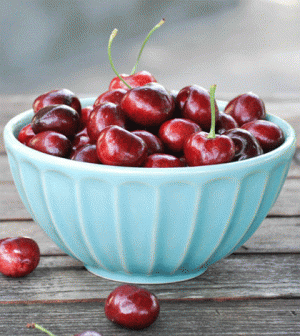- Mothering in a Fractured TimePosted 1 day ago
- Beneath the Surface: Revealing Life’s Goals nurtured from a Spiritual SeedPosted 4 days ago
- How We Kept Marital Peace while Traveling the World with Our KidsPosted 2 weeks ago
- How I Coped with Feeling Lost in a Changing SocietyPosted 2 weeks ago
- The Unexpected Liberation of a Butt DialPosted 1 month ago
- Why is France making abortion a constitutional right?Posted 2 months ago
13 Foods That Can Put You To Sleep

By Andrea Donsky | Naturallysavvy
Do you fall asleep the minute your head hits the pillow? If so, you are unusual, as many of us have some difficulty falling asleep, staying asleep, or waking up and not being able to get back to sleep in a timely fashion. For a significant percentage of the population, it’s a big problem. Forty percent of Americans experience insomnia at some point within a given year. Poor quality sleep is associated with heart disease, poor performance, depression, and injuries, among other problems.
Lots of great tips are available for how to improve sleep habits and overall sleep experience, but one topic that doesn’t get too much press is the foods that can help put you to sleep. Dinner choices and late night snacks can be sleep-enhancers if the right foods are selected.
Read about sleep deprivation and what to do about it
Perhaps you remember hearing how drinking warm milk before bed can help send you off to the sandman. It’s not an old wives’ tale; the calcium in milk boosts levels of melatonin, a hormone intimately involved in sleep cycles. If you boost the concentration of melatonin in your blood, it can help regulate your sleep/wake cycle (aka, circadian rhythm).
Calcium also works with the amino acid tryptophan in dairy foods to make melatonin. Yet one more benefit of calcium is that is helps relax muscles, which can assist with sleep. Milk is just one calcium source that can help (don’t forget calcium-enriched plant beverages). Check out a few others plus 12 additional foods that can help you sleep in the list below. Many of these foods complement each other, which means you should combine them when possible to improve their insomnia-fighting abilities.
Read about 5 things you can do for better rest tonight
Foods that can help you sleep
1. Almonds. Magnesium is the star sleepy ingredient in almonds. People who have low magnesium levels frequently experience sleep problems, so noshing on a few almonds at night could help with sleep. In addition, a new study found that almond extract “has significant sedative and hypnotic effects, which may support its therapeutic use for insomnia.”
2. Bananas. Dr. Oz suggests trying either banana tea (!) or eating a banana to help you sleep. These fruits are high in magnesium and potassium, both of which facilitate better Zzzzzzzs.
3. Cashews and cashew butter. A mere one-quarter cup of cashews provide about 89 milligrams of magnesium. If you prefer, spread some delicious cashew butter on a few whole-grain crackers or sliced banana.
4. Chamomile tea. This soothing tea is an all-time favorite for good reason: it works. Chamomile tea can increase levels of glycine, a chemical that has mild sedative qualities and can relax muscles and nerves. [Editor’s Note: Bigelow Tea has a delicious chamomile and lavender Sleep tea in their new Benefits line.]
5. Chickpeas/hummus. Chickpeas are packed with tryptophan, so why not whip up a batch of hummus and dip into it before bedtime. Hummus spread on lettuce leaves may double the sleeping power.
6. Leafy greens. Kale, mustard greens, beet greens, and spinach are great sources of calcium, which works with tryptophan to make melatonin. Try your leafy greens steamed or include spinach with your lettuce salad.
7. Lettuce. How about some lettuce tea before going to bed? Lettuce contains both magnesium and lactucarium, which has sedative properties. Boil four large lettuce leaves in water, let it steep for 15 minutes, and enjoy with a hint of mint or honey before retiring. A salad with a healthy serving of lettuce may help as well.
8. Oatmeal. This comfort food contains good carbs to help you sleep and, if served with calcium-enriched almond milk, boosts the sleep-enhancing power even higher.
9. Passionfruit tea. Sip this tasty tea one hour before retiring and you should sleep like a baby. Australian researchers found that passionfruit flowers contain Harman alkaloids, which have a sedative effect on the nervous system.
10. Pineapple. This tropical fruit is one of the few foods that contain melatonin; oranges and bananas are two others. Scientists have shown that eating pineapple can significantly increase melatonin concentrations and thus benefit sleep.
11. Tart cherries and cherry juice. Whether you go for tart cherries by themselves (or mixed with banana) or tart cherry juice, either one can provide a boost in melatonin levels. Research shows that men and women who consumed tart cherry juice showed “an increase in exogenous melatonin that is beneficial in improving sleep duration…and might be of benefit in managing disturbed sleep.” If the juice is too tart, add it to a smoothie.
12. Turkey. Turkey does have tryptophan in it, which then gets metabolized into serotonin and melatonin, two of the main chemicals responsible for your dozing off.
13. Walnuts. These tasty nuts are a great source of the amino acid, tryptophan, which facilitates the production of melatonin and serotonin, a calming hormone.
[Editor’s Note: Magnesium is important for relaxation and sleep. We recommend Natural Calm – Calmful Sleep from Natural Vitality.]







